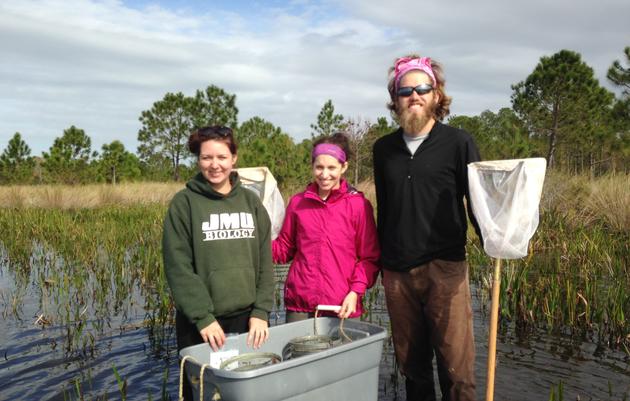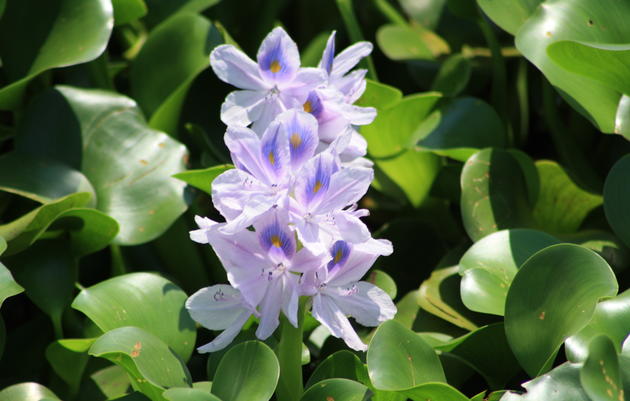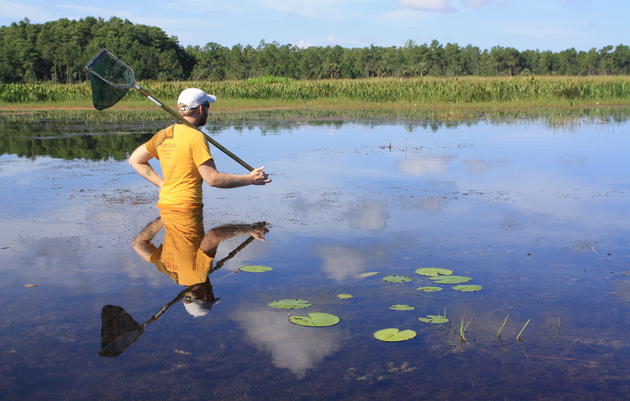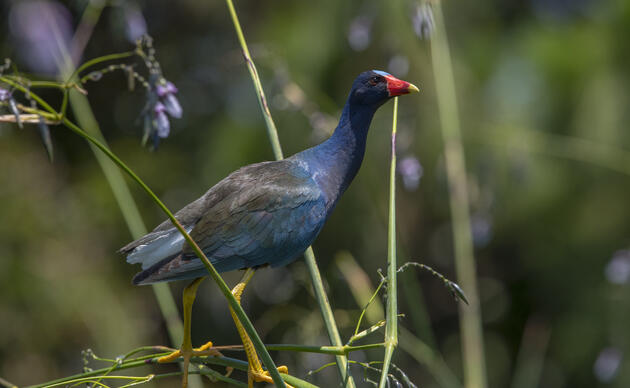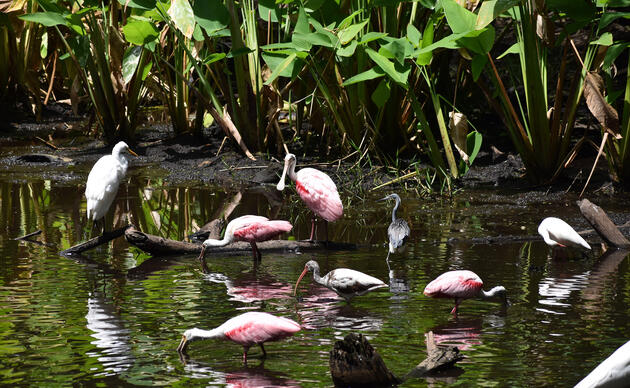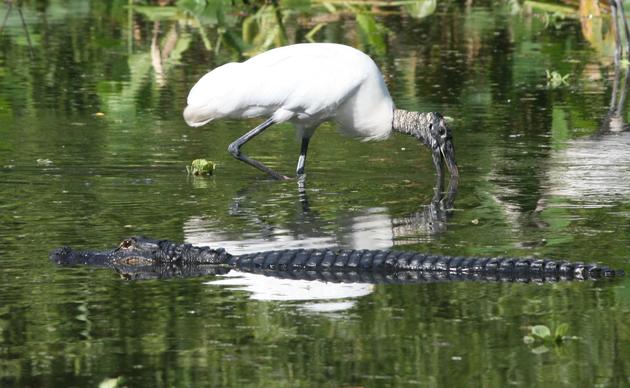The Conservation Internship Program, through the Audubon WINGS program, strives to give interns priceless experiences and an avenue for turning a passion for conservation and the environment into action! Interns participate in an ecologically-sound land management program and assist with on- and off-site hydrologic, vegetation, and wildlife monitoring projects.The monitoring projects and research help drive management decisions.
Some of the land management activities they will actively participate in include:
- Herbicidal treatment of exotic, invasive and native, nuisance plant species
- Mechanical removal of exotic, invasive and native nuisance plant species
- Prescribed fire planning, execution, and post-fire monitoring
Additionally, the interns will be involved in the Science program. Under the guidance of Dr. Shawn Clem, interns will be collecting data and assisting with multiple monitoring projects both on- and off- site.
There are some physical requirements. These are:
- The ability to work long hours in the field in sub-tropical wetland environments, exposed to harsh South Florida environment (sun, biting insects, severe summer storms), sometimes alone and carrying field gear (up to 40 lbs.) for extended periods
- Ability and willingness to work in murky waters and thick vegetation that serve as home to potentially dangerous wildlife such as alligators and venomous snakes
Additionally, there are other criteria being looked for. These include:
- Be currently enrolled in or recent graduation of an institue of higher learning, pursuing a degree in natural science or related field.
- Possess strong communication and interpersonal skills and a team-focused attitude.
- Have a strong desire to learn about conservation and have a basic understanding of ecology.
- Demonstrate the ability to exercise sound judgment and adaptability to changing work conditions.
- Own a valid driver's license (experience with ATVs, 4WD vehicles and the ability to operate a manual transmission is a plus); and
- Commit to the full duration of the internship
This full-time six month internship has three sessions: from January through June, March through August, and September through February; the position will not exceed 40 hours per week, with occasional weekend work, as needed.
On-site housing is required due to the relatively remote location of the Sanctuary and early field hours. Housing is a furnished one-level dormitory-style building with four bedrooms, two bathrooms, two joined kitchens, a living room and a screened porch. Wireless internet, water, electricity and local phone service are provided. Rooms may be shared (gender inclusive) with other interns and housing may be shared with visiting researchers, Americorps team members, or other special guests.
Please check back as internship postings come up every 3-4 months.
For more information about the Conservation Intern program, please email Allyson Webb
LEARN ABOUT OUR CURRENT CORKSCREW INTERNS--
|
NICHOLAS LECHMANIK
|
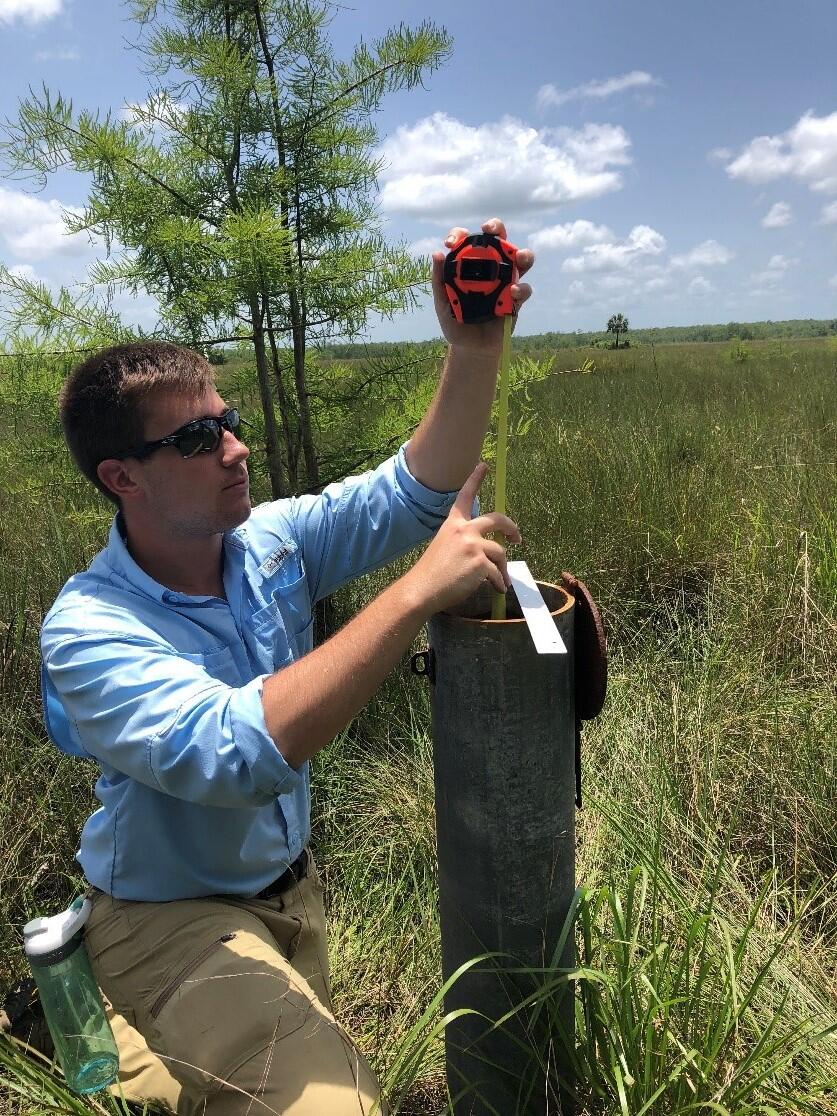 |
Hi! My name is Nicholas Lechmanik. I graduated from Florida Gulf Coast University in May 2020 with a Bachelor’s degree in Environmental Studies and a minor in Biology. I studied abroad in South Africa with an emphasis on conservation. My Senior Research was a study on migrating shorebirds with a focus on human disturbance at Clam Pass Beach in Naples, Florida. I am originally from Pennsylvania but now live in Naples, Florida. I worked as an intern at Fakahatchee Strand Preserve State Park. There I read water wells, counted birds, and scanned transects. In my free time, I enjoy traveling, wildlife photography, and nature hikes. I am really excited to help the team at Corkscrew Swamp Sanctuary. |
More Information
Invasive Species
It is important that Corkscrew Swamp remain in its natural state, the way Florida looked for hundreds of years.
Western Everglades Science
Providing the sound science needed to drive conservation and restoration.
How you can help, right now
Donate to Protect Corkscrew's Birds and Wetlands
Make a meaningful and lasting gift to protect Corkscrew Swamp Sanctuary's rare Everglades habitat.
Become a Member
Join an extraordinary and growing community of members dedicated to supporting the conservation of natural ecosystems throughout the Western Everglades.
Sign Up for the Corkscrew eNewsletter
Stay connected to Corkscrew Swamp. Sign up for our monthly online newsletter.

